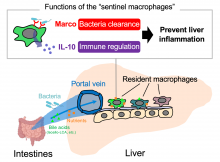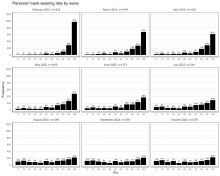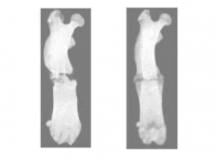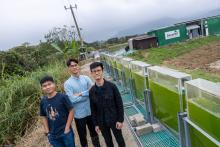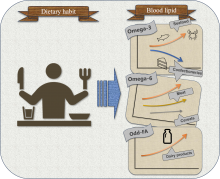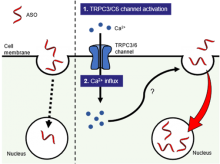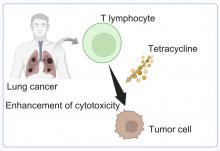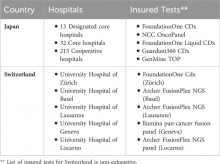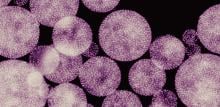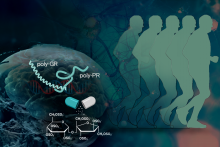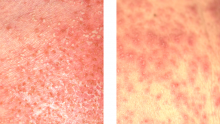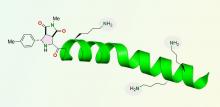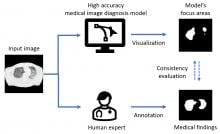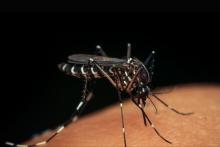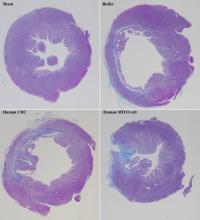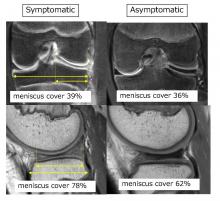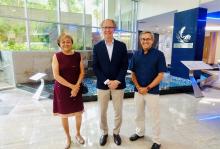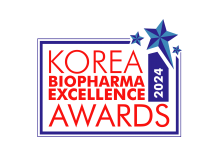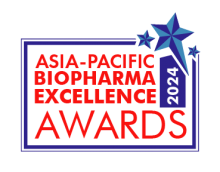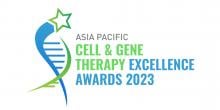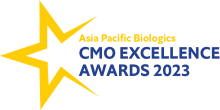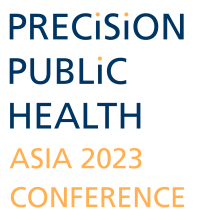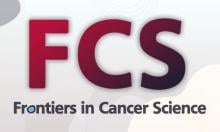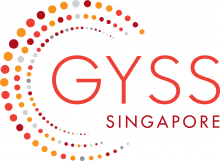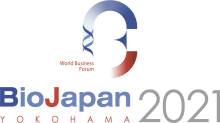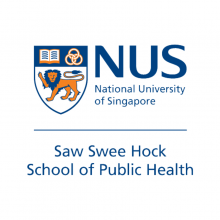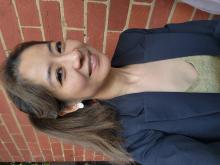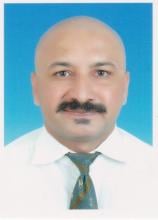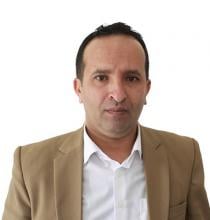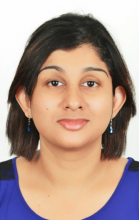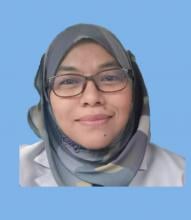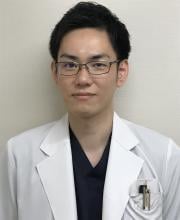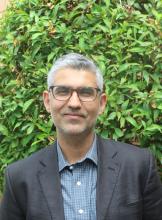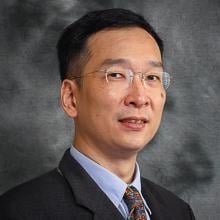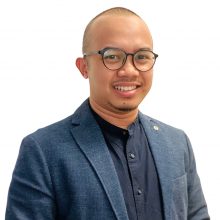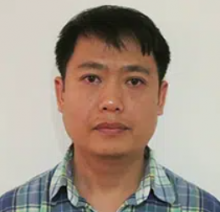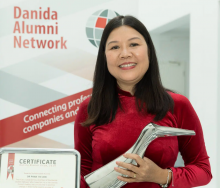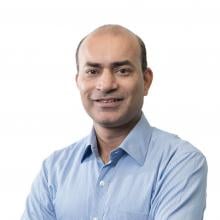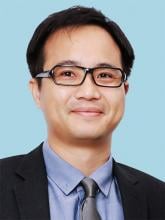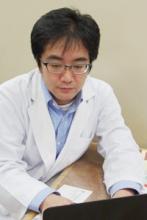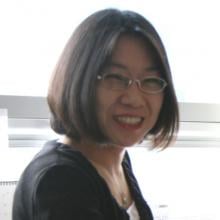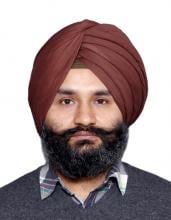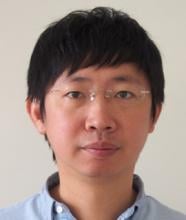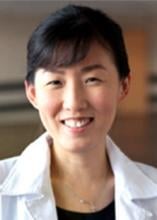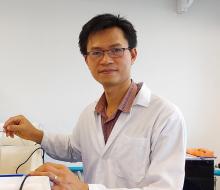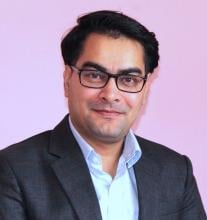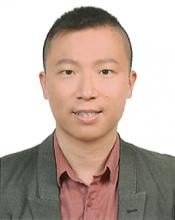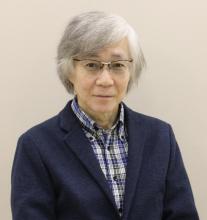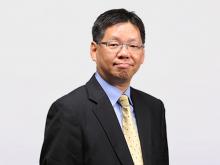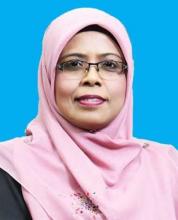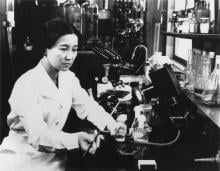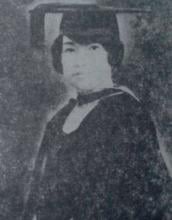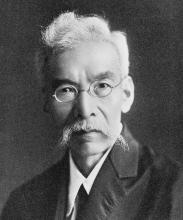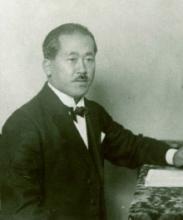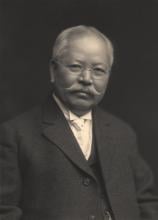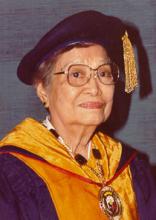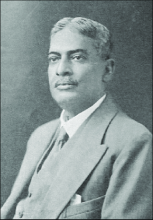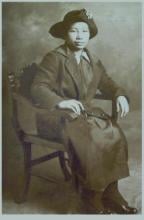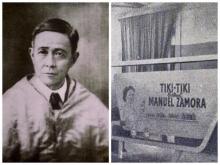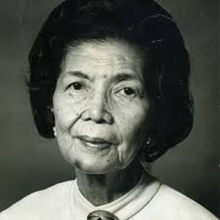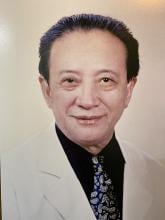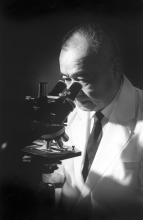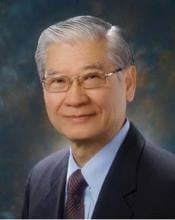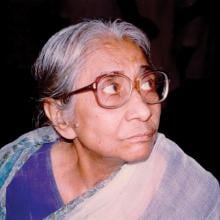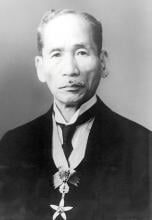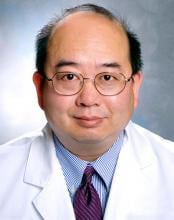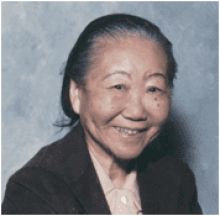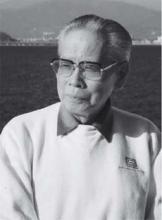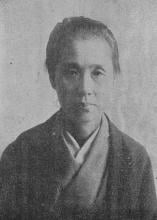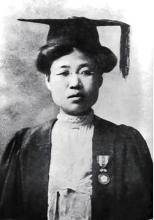Medicine & Healthcare
News
25 Apr 2024
Osaka University researchers discovered liver resident macrophages' pivotal role in defending against gut bacteria and related substances entering via the portal vein, particularly under compromised intestinal barrier conditions. Identified as "sentinel macrophages," they are activated by isoallo-lithocholic acid. This finding holds promise for developing preventive and therapeutic strategies for liver chronic inflammatory diseases, such as metabolic dysfunction-associated steatohepatitis (MASH), by enhancing the function of these macrophages to mitigate inflammation and improve treatment efficacy.
24 Apr 2024
Researchers from Osaka University examined how specific types of contextual changes, such as government recommendations and perceived behavior of others, influenced mask-wearing behavior during the COVID-19 pandemic. They found a complex relationship between societal norms and individual behavior during the pandemic, indicating that future strategies for public health crises interventions should consider various factors and contexts, including cultural predispositions.
22 Apr 2024
Bacteriophage therapy could be developed based on study’s results
16 Apr 2024
Aiming to reduce fracture recovery times, an Osaka Metropolitan University-led research group is focusing on plasma irradiation as a treatment method
16 Apr 2024
Algae, a kind of organism commonly found on the water surface, is a highly efficient carbon absorbent, which can capture more carbon dioxide (CO2) than trees. Alcarbo Technologies Limited (Alcarbo) is a biotechnology company incubated by the Seed Fund and Angel Fund of City University of Hong Kong (CityU)’s HK Tech 300. It cultivates microalgae using genetic mutation technology and uses its self-developed “photobioreactor system” (PBRs) and nanobubble technology to enhance the carbon capture capacity of microalgae. This allows microalgae to capture about 68 times the amount of CO2 of an equivalent area of forest, making them “Super Carbon Capture” species.
15 Apr 2024
A recent study by Tohoku University researchers has shed light on the association between dairy product consumption and odd-number carbon chain fatty acids (odd-FA) within the Japanese population, a correlation previously confirmed in Europe and Oceania but understudied in Asian countries.
15 Apr 2024
Researchers from Osaka University found that a new activator called L687 induces cancer cells to accept delivery of antisense oligonucleotide (ASO) drugs. These drugs can treat cancer by blocking the transfer of messages from genes that encourage cancer growth. Previous methods to deliver ASOs into cells had only limited success. This research will help accelerate the development and delivery of novel ASO cancer therapies.
12 Apr 2024
Zika virus vaccine targets brain cancer, 120-year quest to farm lobsters, Arctic nightlife bursts with sound, Eating a robot, Molecular orientation is key & New treatment for ALS and dementia. Read all in the latest Editor's Choice.
10 Apr 2024
Researchers from Osaka University found that tetracycline antibiotics stimulate T lymphocytes in the body’s immune system to attack and destroy cancer cells. The antibiotics work by blocking the action of galactin-1, a protein made by cancer cells that suppresses the immune system. Identification of this new target may lead to the development of novel cancer immunotherapies.
08 Apr 2024
Researchers from Japan’s Osaka University and Switzerland’s University of Lausanne explored the ethical considerations and current status of cancer multigene panel testing access in their countries. Despite cultural and healthcare differences, they found common national barriers: limited test availability, insufficient patient information, and variable insurance coverage. The study underscores the need for more equitable genetic medicine, suggesting improvements in test access, patient education, and insurance policies.
05 Apr 2024
New research could pave the way to develop cancer drugs targeting an enzyme that inhibits ferroptosis, a type of cell death. Cancer cells that are resistant to anticancer drugs are known to be vulnerable to ferroptosis. Therefore, agents that effectively induce or enhance the sensitivity of cancer cells to ferroptosis are expected to become novel anticancer agents.
05 Apr 2024
Rapid, responsive, and readily-available antigen-antibody testing is crucial in the fight against infectious diseases, something driven home by the COVID-19 pandemic. To improve these tests, a Tohoku University research group has created a new method to form polymer particles that are adorned with gold nanoparticles.
01 Apr 2024
Researchers from Osaka University found that exposure to environmental carcinogens and psychological distress significantly decreases happy life expectancy, a measure of the lifespan during which an individual experiences subjective emotional wellbeing. These findings suggest that developing public health policies to reduce exposure to these chemicals could help people live longer, happier lives.
27 Mar 2024
Researchers from Monash University and Osaka University have unveiled a groundbreaking discovery regarding the pivotal role of sensory neurons in orchestrating tissue repair and regeneration, offering significant promise for patients with poorly healing tissues and diabetes.
26 Mar 2024
Numerical basis found for picosecond laser endpoints in effective clinical treatments with fewer complications
21 Mar 2024
Scientists from Duke-NUS Medical School have identified a gene that plays a crucial role in regulating energy supply to cells that drive kidney failure. This discovery concerning the gene, named WWP2, offers a new target for therapies aimed at mitigating kidney scarring and damage.
18 Mar 2024
Amyotrophic Lateral Sclerosis (ALS) and Frontotemporal Dementia (FTD) are neurodegenerative diseases that commonly occur in middle-aged people. FTD is second only to Alzheimer's disease in terms of dementia prevalence. Both ALS and FTD arise from neuronal degeneration through mechanisms that remain unclear. Dr. Yun-Ru (Ruby) Chen's team in the Genomics Research Center (GRC), Academia Sinica recently discovered a new pathological mechanism for neuronal degeneration using synthetic peptides. They also discovered that a disaccharide can increase neuronal survival and reduce degeneration. The result provides therapeutic strategies for future treatment of these neurodegenerative diseases. The study was published in the top international journal "Science Advances" on February 23, 2024.
15 Mar 2024
Two rare skin conditions with similar symptoms can be mistaken for each other, so a scoring system has been formulated to aid physicians in distinguishing two diseases
14 Mar 2024
Ancient Mars biomolecules, Gargling away bad bacteria, Molecule glasses magnify life-chemical observations, Cholesterol and cancer link, Quantum electronics leap, Plus our updated Experts for Media: Women list & Asia Research News 2024 is here. Read all in the latest Editor's Choice.
11 Mar 2024
Peptides are short strands of amino acids that are increasingly used therapeutically, as biomaterials and as chemical and biological probes. The capacity to isolate, manipulate and label peptides and larger proteins is limited, however, by the ability to reliably attach functional molecules, such as fluorescent compounds, to peptides in locations that won’t affect the three-dimensional structure and function of the short amino acid strand. Researchers have developed a unique chemical reaction to attach two distinct functional molecules to the N-terminus of a peptide in an efficient, robust reaction under mild conditions.
27 Feb 2024
research team from Tohoku University Graduate School of Medicine undertook a detailed examination of the medical validity of deep learning models using post-mortem imaging for diagnosing drowning. The results reveal an inconsistency between the deep learning models’ results and the medical professionals’ observations.
26 Feb 2024
Magnetic nanorobots delivering nerve cells to targeted tissues could potentially be used to repair damaged brain tissue, as well as other organs.
26 Feb 2024
MozzHub, a user-friendly dengue hotspot detector, could significantly assist the management and control of dengue.
21 Feb 2024
Regenerative therapy to treat heart failure is more effective when the mitochondria of the regenerative cells are activated prior to treatment.
19 Feb 2024
In a step forward for breast cancer treatment, researchers at Tohoku University have developed a novel monoclonal antibody which specifically targets a certain type of breast cancer cell.
16 Feb 2024
Researchers at Osaka Metropolitan University assess why post-operative symptoms such as pins and needles, sudden cold, burning, itching, and numbness in the limbs remain in patients suffering from cervical spondylotic myelopathy, even after surgery. The researchers also evaluated the patients’ satisfaction with postoperative treatment. They found that it was lower for those who still had paresthesia in their hands and feet, regardless of whether their motor symptoms had improved or not.
15 Feb 2024
Vaccines and therapies based on messenger RNA could be more readily delivered due to a non-toxic polymer that protects RNA and controls its release inside cells.
08 Feb 2024
A new coating for tiny vaccine carriers allows vaccines to remain in the body for longer.
07 Feb 2024
Elucidating why some patients with specific joint deformities are symptomatic while others are not
06 Feb 2024
The estate of the late Ms Diana Koh gifted S$1M to Duke-NUS Medical School and NUS Medicine to fund young cancer researchers and raise awareness about cancer research advances. The gift establishes research funds, grants, prizes, and learning series to support innovative approaches to cancer treatment by the next generation of scientists and clinicians.
Events

13 May 2024 to 14 May 2024
The Symposium will showcase the growing field of early cancer intervention in Asia and will serve as a vital platform for scientists and clinicians to converge and explore the latest advancements in early cancer intervention strategies, spanning from cutting-edge research to community-centric strategies.
13 Aug 2024
The Korea Biopharma Excellence Awards celebrate the achievements of biopharma experts/organizations in South Korea and East Asia who have made remarkable advancements in biologics, cell and gene therapy, and vaccine development throughout the years.
20 Mar 2024
The Asia-Pacific Biopharma Excellence Awards 2024 seeks to give recognition to exceptional Asian bioprocessing, logistics and supply chain management, as well as clinical trials experts, organisations and technologies over the past year. Recognising outstanding achievements of top biopharma leaders in the industry, the Asia-Pacific Biopharma Excellence Awards applauds extraordinary leaders & trend-setters of today and inspires innovators of tomorrow.
06 Nov 2023 to 08 Nov 2023
Bringing together distinguished cancer researchers with complementary knowledge and expertise from across the globe for the exchange of ideas and information.

26 Oct 2023
The Faculty of Medicine Universiti Kebangsaan Malaysia will be organising the 15th Medical Undergraduates' Annual Scientific Research Meeting (MUASRM) on 26th October 2023.
31 Oct 2023 to 02 Nov 2023
Experience TechInnovation 2023, held at Marina Bay Sands from October 31 to November 2. Explore themes of Sustainability, Health and Well-being, and AI in Healthcare.
14 Sep 2023
Asia Pacific CGT Excellence Awards 2023 seeks to give recognition to exceptional Cell & Gene Therapy Pioneers, Researchers, Innovators & Manufacturers that facilitate fast advancement in new therapies, R&D and manufacturing.
14 Sep 2023
Asia Pacific Biologics CMO Excellence Awards 2023 seeks to give recognition to exceptional CMO & CDMO that facilitate biologics manufacturing excellence at enhanced speed, reduced cost, and superior quality from the biologics contract manufacturing space.

11 Oct 2023 to 13 Oct 2023
Meet your potential business partners in this Partnering Event. Asia's Largest Partnering will be held in both digitally and physically.
12 Jul 2023 to 14 Jul 2023
Advancing Precision Public Health in Asia and Beyond – The Future is Now
09 Aug 2023 to 11 Aug 2023
The Malaysia Technology Expo (MTE) 2023: Advanced Healthcare and Life Sciences International Innovation Awards & Expo (AHLS IIAE) is set to take place virtually on 9-11 August 2023, bringing together the best and brightest minds from the healthcare and life sciences industries.
26 Jul 2023 to 30 Jul 2023
BIO Asia–Taiwan is Asia's largest biotech networking event, and is jointly organized by the global Biotechnology Innovation Organization (BIO) and the Taiwan Bio Industry Organization (Taiwan BIO).
24 Sep 2023 to 28 Sep 2023
RehabWeek is a week-long event that brings together different conferences in the field of rehabilitation technology at the same time and place in order to foster cross-disciplinary communication and the development of relationships between different players.
21 Feb 2023 to 22 Feb 2023
The 2nd Edition Asia Healthcare Analytics Summit by 3novex aims to bring together experts and key-players to present and discuss current trends in healthcare technology to catapult your data-driven outcomes.
07 Nov 2022 to 11 Nov 2022
The World One Health Congress is the world’s premier conference to advance the One Health agenda, profiling and advancing transdisciplinary efforts that further our collective understanding of animal-human disease transmission alongside their social and environmental determinants.
27 Jul 2022 to 31 Jul 2022
BIO Asia–Taiwan is Asia's largest biotech networking event, and is jointly organized by the global Biotechnology Innovation Organization (BIO) and the Taiwan Bio Industry Organization (Taiwan BIO).
20 Jun 2022 to 24 Jun 2022
This event, held alongside the COVID-19 International Innovation Awards from 20 to 24 June, will bring forth and showcase innovations that are driving improvements and transforming the healthcare industry.
20 Jun 2022 to 24 Jun 2022
COVID-19 International Innovation Awards (a virtual event), part of MTE 2022 year-long innovation awards programme, is scheduled to return on 20-24 June 2022. The awards are created to acknowledge and celebrate all innovations in response to COVID-19.
07 Nov 2022 to 09 Nov 2022
FCS2022 is jointly organized by eight major research institutes in Singapore and includes a line-up of internationally renowned cancer experts. The conference converges the latest cancer discoveries around the world and promises ground-breaking and innovative insights into cancer research.
17 Jan 2022 to 21 Jan 2022
World’s brightest minds converge at virtual summit to inspire young researchers and discuss key issues
25 Jan 2022 to 26 Jan 2022
With a brand-new focus, join us to explore Asia Healthcare Analytics Summit happening LIVE on 25 & 26 January 2022 via Hopin platform with 30+ Inspiring speakers, 100+ Virtual attendees, 4+ Networking session, 3+ Panel discussions of healthcare experts globally participating in this summit.
25 Nov 2021
Speakers from Singapore, India and Korea, invited to speak at Regional Webinar on virtual surgical planning in oral and facial surgery
11 Oct 2021 to 14 Oct 2021
Pandemics and Policy: Protecting Health and Promoting Economic Recovery
18 Oct 2021 to 19 Oct 2021
Now in its 14th installation, the HIMSS21 APAC Conference will converge under the theme of Future-Proof Healthcare: The Emergence of Asia Pacific.
12 Oct 2021 to 15 Oct 2021
The Asia's Largest Partnering “BioJapan” will be held both digitally and physically. Meet your potential business partners in this Partnering Event!
28 Sep 2021 to 30 Sep 2021
TECHINNOVATION is a premier technology-to-industry matching event presented by IPI. It brings together international technology providers and enterprises to accelerate the commercialisation of emerging technologies, seed licensing opportunities and foster open innovation collaborations.
07 Oct 2021 to 08 Oct 2021
The National Healthcare Group (NHG) is proud to present the 19th Edition of the Singapore Health & Biomedical Congress (SHBC).
07 Apr 2021 to 09 Apr 2021
Join us from 7 to 9 April 2021 at the Precision Public Health Asia 2021 Conference to find out how precision public health can improve health outcomes and equity to deliver ‘personalised’ public health.
24 Feb 2021 to 26 Feb 2021
INTERPHEX Week Osaka is Asia's leading exhibition for pharmaceutical industry, consists of 2 exhibitions for pharmaceutical technologies - INTERPHEX OSAKA (Manufacturing & Packaging) and PharmaLab Expo OSAKA (Pharma R&D and Drug Discovery).
12 Jan 2021 to 15 Jan 2021
Organised by the National Research Foundation – Prime Minister’s Office, Singapore, the ninth edition of the Global Young Scientists Summit (GYSS@one-north) will take place 12 to 15 January 2021 as a virtual event.
Researchers
Dr Linny Kimly Phuong is a paediatric infectious diseases physician and researcher. She holds appointments at the Royal Children’s Hospital, Cabrini Health and the Murdoch Children’s Research Institute. Linny’s areas of research include paediatric infections, Kawasaki disease and vaccine safety.
Sarfraz Ahmed is working as a Scientist at Harvard Medical School's Mass General Hospital. His research interests include Diseases and Therapeutics especially focus on Cancer and Therapeutics, Cancer Immunology, Photomedicine, Photo compounds and Photodevices for Cancer, Cancer and Natural agents, Nanomedicine and Nanotechnology for Cancer, Drugs resistance, Microbiology (Bacteriology & Virology) and Drugs resistance
I am a microbiologist currently working as a lecturer in the Medical Microbiology Department, Faculty of Applied Science, Hajjah University, Yemen. I am interested in research areas related to the prevalence of infectious diseases caused by bacteria, viruses, fungi, and parasites in different areas in Yemen.
Angeli Ambayya is a Scientific Officer (Ministry of Health, Malaysia). She is passionate about research in the field of hemato-oncology.
Hamidah Othman, obtained her Bachelor of Nursing Science in 2008, Master of Nursing in 2013 from the University of Malaya and PhD in Nursing, 2022 from International Islamic University Malaysia. Her interest was a critical care in nursing and psychological need towards family members with patients’ admit to the Intensive Care Unit, End of Life care and research in relation to the evidence based practice in nursing. She is currently working as Head and Lecturer at School of Nursing Science, Faculty of Medicine, University of Sultan Zainal Abidin, Kuala Terengganu, Malaysia.
Prof. Ryo Katsumata specialized in clinical research within gastroenterology, particularly in neurogastroenterology. His focus revolves around understanding the brain-gut interaction and the pathophysiology of disorders like functional dyspepsia (FD) and irritable bowel syndrome (IBS) that involve the gut-brain connection.
Epidemiologist working with health of marginalized groups, including migrants, informal houses residents, homeless and women caregivers.
Physician-researcher; Primary area of research: Ageing, at the individual and the population level; Geographical focus: Singapore, with some work in other Asian countries.
Dr Ashfaq Ahmad Shah 'اشفاک ' born on 6 June 1992, from south Kashmir, Doderkoot ددیرکوٹ Kulgam, Jammu and Kashmir, India is the infection immunity doctoral researcher at the Graphic Era (Deemed to be University), Dehradun, UK, India. Dr Shah is pursuing novel dimensions of infection immunity pertaining to the correlation and impact of phyto-immune components termed phytoalexins and phytoanticipins on the benign immune system of human beings. This parameter of immunology is termed phytoalexin-immunomodulation scrutiny. His area of interest lies in Preclinical and clinical studies, i.e. vaccine adjuvant development, development of anti-inflammatory and antimicrobial compounds, evaluation of antibiotic resistance, study of Immuno-modulatory activities, disease model studies, protease isolation against specific protein antigens, and the discipline of Kalology including tyrosinase inhibition, PPO inhibition, skin whitening agents, kerato-peeling etc. Dr Ashfaq is a Doctoral Researcher, Reviewer and Editorial member of several journals and books. He is having several publications in journals of national and international repute. So far he has published more than thirty scopus infection/immunology/pharmacology scientific papers, including Fifteen international book chapters and two international books. Mr Shah received the Young scientist award in August 2023 for his groundbreaking academic performance in the field of infection immunity. Mr Shah has also been an editor of Wikipedia pages in medical science since 2015 with more than 1000 edits in medical topics available to medical literature worldwide.
Dr. Cheng-Siang Tan is an Associate Professor at the Faculty of Medicine and Health Sciences, Universiti Malaysia Sarawak (UNIMAS). He is an expert in infectious and emerging diseases and biosafety and biorisk management.
Ilham Akhsanu Ridlo is an early-career researcher and assistant professor at Indonesia's Faculty of Public Health, Universitas Airlangga. He is a Ph.D. student at Institut für Kommunikationswissenschaft und Medienforschung (IfKW), Ludwig-Maximilians-Universität München. Ilham believes science communication is crucial in bridging the gap between research practice and health policy implementation. His research area concerns how scientists and journalists influence decision-makers to understand scientific uncertainty in public health.
Nguyen Huu Nghia is the Director of the Center for Environment and Disease Monitoring in Aquaculture (CEDMA) at the Research Institute for Aquaculture No.1 (RIA1) under Vietnam’s Ministry of Agriculture and Rural Development. He has co-managed various research efforts in Vietnam aquaculture as well as published recent research into the use of nanobubbles.
Dr. Van was previously the Director of the Research Institute for Aquaculture No.1 (RIA1) under Vietnam’s Ministry of Agriculture and Rural Development. She has extensive expertise in aquatic animal health and aquaculture safety management.
Professor St-Hilaire is associate head and professor at the Department of Infectious Diseases and Public Health, City University of Hong Kong (CityU). She has extensively researched fish nutrition and diseases, including treatment efficacy, and has helped investigate fish disease outbreaks.
Dr. Singhal serves as senior principal investigator at the Bacterial Immunopathology Lab at A*STAR ID Labs in Singapore. His work at A*STAR ID Labs revolves around three main pathogens: Mycobacterium tuberculosis, Gram-negative bacteria and Dengue virus.
Dr. Deng is a biomedical scientist with a special interest in bacterial virulence, including gene regulation, signaling pathways, and RNA epigenetics. He has worked on virulence regulation in pathogens to discover new therapies against bacterial infections.
Dr. Ozawa is a Specially Appointed Professor at the Department of Dermatology, Graduate School of Medicine, Osaka Metropolitan University (formerly Osaka City University). His specialized field is skin malignant tumor and surgery.
Dr. Soojin Jang heads the Antibacterial Resistance Research Laboratory at Institut Pasteur Korea, where her team focuses on discovering new antibacterial agents for “superbugs” or bacteria resistant to most antibiotics.
Dr Kanimolli Arasu is a lecturer and a dietitian at the International Medical University, Malaysia.
Dr Singh is working as an Additional Professor of Radiology. Besides specializing in medical Imaging, he has received certifications in Global Health, Science Diplomacy and Biomedical Research. His areas of interest and expertise are as follows: Radiology, Nuclear Medicine, Medicine, Health, Public Health, Global Health, Health Policy, Health Systems, evidence-based healthcare and Healthcare leadership.
A PhD student in the health sciences department, studying population studies in health. A graduate student researcher at the University of Lethbridge, under the guidance of Dr. Olu Awosoga and Dr. Hendrika Beaulieu. Majoring in Indigenous health and conducting research on perceived mental and general health status of Indigenous women with chronic illnesses, relating to past experiences of discrimination, trauma and racism. Also focusing on the impact of health policies on the perception of wellness and health. Prior to coming to Canada, worked under the supervision of the UNHCR in Malaysia in project on the access and utilization of healthcare services among refugees. Holds an MSc in public health from the International Medical University and a Bachelor degree in Dental Surgery from Sana’a University.
Dr. Iyaswamy Ashok is currently a Research Assistant Professor at School of Chinese Medicine.
Dr. Brian Man Yu Bon is currently serving as an Assistant Professor in Department of Science and Environmental Studies, The Education University of Hong Kong.
Dr Kwa is currently a Pharmacy Clinician Scientist and Assistant Director, Pharmacy (Research), at the Singapore General Hospital. She specializes in critical care medicine, infectious diseases and antimicrobial resistance research.
Dr. Dong currently works at the Asian Institute of Technology. He does research in Aquaculture, Pathology, Infectious Diseases, and Aquatic Bioscience.
Suraj Bhattarai is a global health specialist and tropical medicine physician with research interests in infectious disease epidemiology and surveillance, health systems, and urban health. He is a co-founder and research fellow at the Global Institute for Interdisciplinary Studies, a Kathmandu-based academic institute that promotes and conducts interdisciplinary research. He is a member of Global Young Academy and an Alumni steering committee member of IAP-Young Physician Leaders Programme. He obtained medical training in Nepal and masters in Tropical Medicine & International Health from the LSHTM, UK.
Dr Brian Kot is a registered diagnostic radiographer and veterinary imaging researcher in the City University of Hong Kong.
Takashi Hashimoto's major expertise is clinical and basic research for both autoimmune bullous diseases and hereditary skin diseases.
Professor Chou has wide research interests in areas concerning geriatric psychiatry, elderly policies, population policy especially immigrant policy, poverty, welfare reform, income inequality and health policy.
Dr. Salizar Binti Mohamed Ludin is an Assoc. Prof at the Kulliyyah of Nursing of International Islamic University Malaysia.
Giants in history
Ruby Sakae Hirose (1904 – 1960) was a Japanese-American scientist whose research contributed significantly to our understanding of blood clotting, allergies and cancer.
Iranian physician and bacteriologist Azar Andami (8 December 1926 – 19 August 1984) developed a cholera vaccine to combat an outbreak that swept through the Middle East, India, Southeast Asia, and Africa in 1937.
Maggie Lim (5 January 1913 – November 1995) was a Singaporean physician who promoted family planning and expanded the access to clinics to improve the quality of life for mothers and children in Singapore’s early days.
The founder of the Adyar Cancer Institute in India, Muthulakshmi Reddy (30 July 1886 – 22 July 1968), fought to uplift women and girls from impoverished situations.
The first Thai woman to receive a degree in medicine, Margaret Lin Xavier (29 May 1898 – 6 December 1932), is best remembered for her compassion towards her less privileged patients.
In 1915, pathologist Katsusaburo Yamagiwa and his research assistant Koichi Ichikawa became the first to prove that chronic exposure to chemicals can cause cancer.
In 1915, Koichi Ichikawa along with pathologist Katsusaburo Yamagiwa became the first to prove that chronic exposure to chemicals can cause cancer.
Japanese chemist Takamine Jokichi (3 November 1854 – 22 July 1922) founded the Tokyo Artificial Fertilizer Company, where he isolated a starch-digesting enzyme (named takadiastase) from the fungus Aspergillus oryzae.
Ground-breaking cancer researcher Kamal Jayasing Ranadive (8 November 1917 – 11 April 2001) advanced the understanding of the causes of leukaemia, breast cancer and oesophageal cancer through the use of animal models. She was also among the first to recognise how susceptibility to cancer is linked to tumour-causing interactions between hormones and viruses.
The research of Filipino pharmaceutical chemist Luz Oliveros-Belardo (3 November 1906 – 12 December 1999) focussed on essential oils and other chemicals derived from native Philippine plants.
Thai physician and conservationist Boonsong Lekagul (1907 – 1992) made major contributions to the preservation of his country’s wildlife.
Indian scientist and physician Upendranath Brahmachari (19 December 1873–6 February 1946) is best known for creating a drug called Urea Stibamine, used to safely and reliably treat visceral leishmaniasis (or Kala-azar), a severe infection caused by the Leishmania parasite.
Filipina chemist María Orosa (29 November 1892–13 February 1945) fought malnutrition and food insecurity in the Philippines by devising over 700 culinary creations including Soyalac, a nutrient rich drink made from soybeans, and Darak, rice cookies packed with Vitamin B1, which could prevent beriberi disease caused by Vitamin B1 deficiency. She was also a partisan of the guerrilla movement resisting Japanese occupation during World War II, and died after being struck by shrapnel while working in her laboratory during the Battle of Manila.
Filipino chemist and pharmacist Manuel A. Zamora (29 March 1870 – 9 July 1929) is best remembered for his discovery of the tiki-tiki formula to combat beriberi, a disease caused by Vitamin B1 deficiency.
Fe Villanueva del Mundo (27 November 1911 – 6 August 2011) was a Filipina paediatrician who founded the Philippines’ first paediatric hospital.
After witnessing death and suffering as a youth in his home village during World War II, Nguyễn Tài Thu (6 April 1931 – 14 February 2021) set his sights on alleviating pain by becoming a doctor. After studying Traditional Chinese Medicine in China in the 1950s, Thu returned to Vietnam to serve in military hospitals. Eventually, he became the country’s foremost practitioner of acupuncture, a technique he first learned by inserting needles into himself.
Minoru Shirota (April 23, 1899 – March 10, 1982) was a Japanese microbiologist who invented the popular fermented drink Yakult.
Wu Lien-teh (10 March 1879 – 21 January 1960) was a Malaysian-born doctor who invented a mask that effectively suppressed disease transmission. Winning the prestigious Queen’s Scholarship enabled Wu to become the first Chinese student to study medicine at the University of Cambridge.
David T. Wong (born 1936) is a Hong Kong-born American neuroscientist who is best known for discovering the antidepressant drug fluoxetine, better known as Prozac.
Indian organic chemist Asima Chatterjee (1917 to 2006) studied the medicinal properties of plant products, especially compounds known as vinca alkaloids.
Umetaro Suzuki (7 April 1874 – 20 September 1943) was a Japanese scientist best remembered for his research on beriberi, a disease caused by vitamin B1 deficiency, characterized by limb stiffness, paralysis and pain.
Barry Paw (29 August 1962 – 28 December 2017) was a biologist and oncologist who discovered several novel genes and their functions in red blood cells.
Tsai-Fan Yu (1911 – 2 March 2007) was a Chinese-American physician and researcher who was the first female full professor at Mount Sinai School of Medicine. She discovered that gout, a condition characterized by the painful inflammation of joints, was caused by elevated levels of uric acid in the bloodstream.
A Japanese surgeon, Tetsuzo Akutsu (20 August 1922 – 9 August 2007) built the first artificial heart capable of keeping an animal alive.
Ogino Ginko (3 March 1851 – 23 June 1913) was the first registered female doctor to practise modern medicine in Japan.
Esther Park (1877-1910), born Kim Jeom-dong, was the first female Korean physician to practise modern medicine in Korea and trained the first generation of Korean female doctors.


